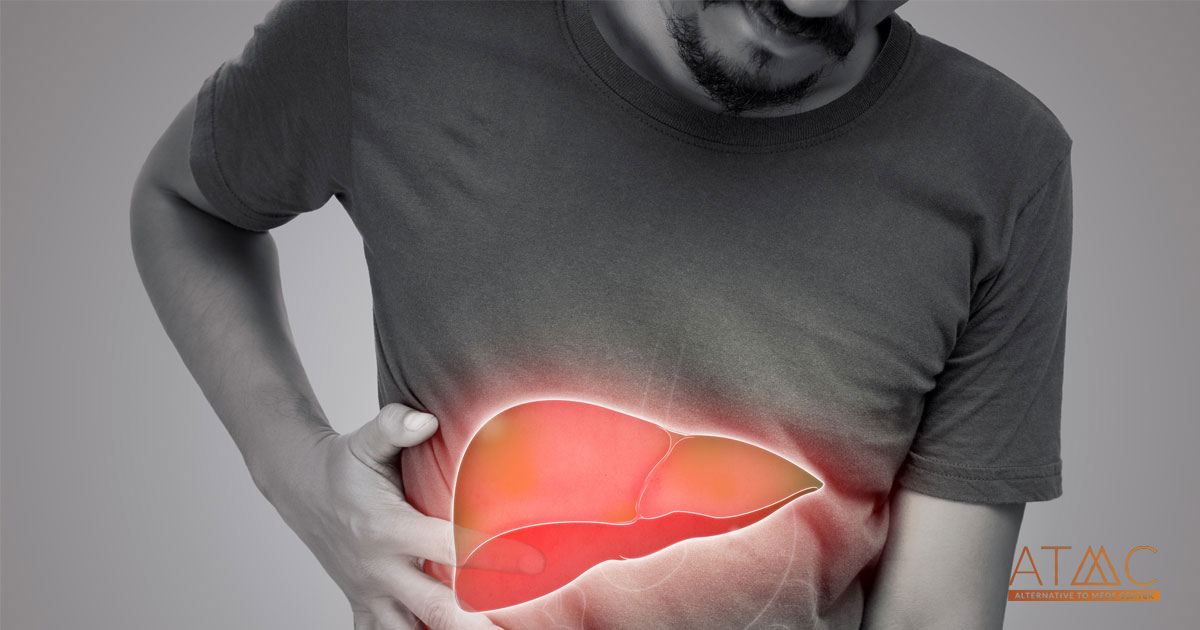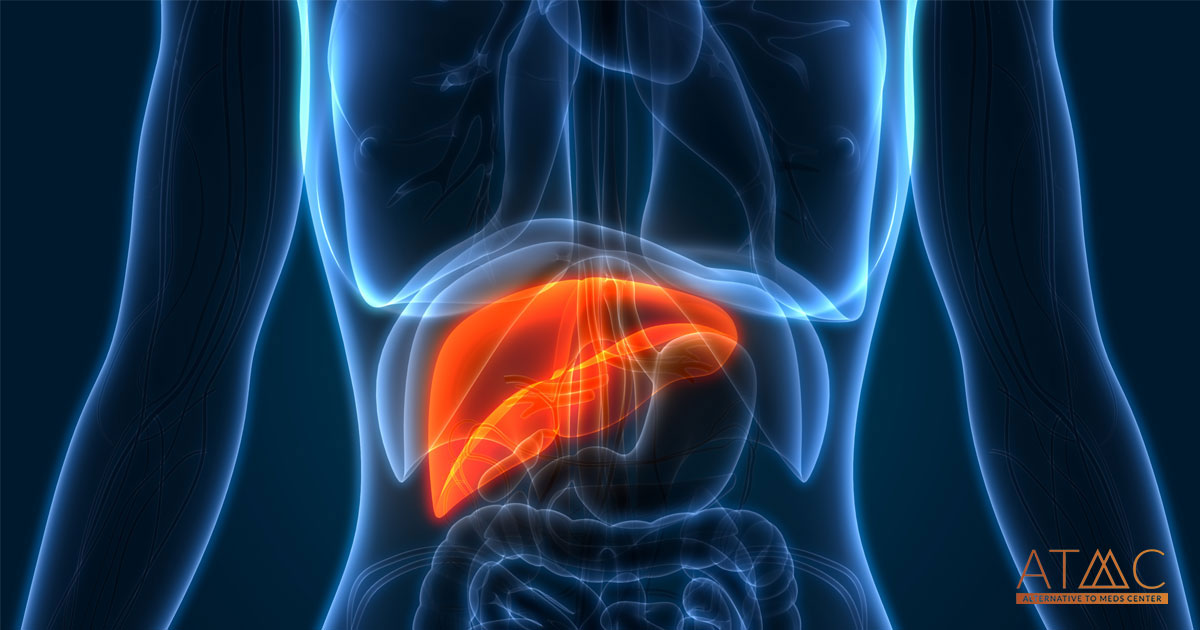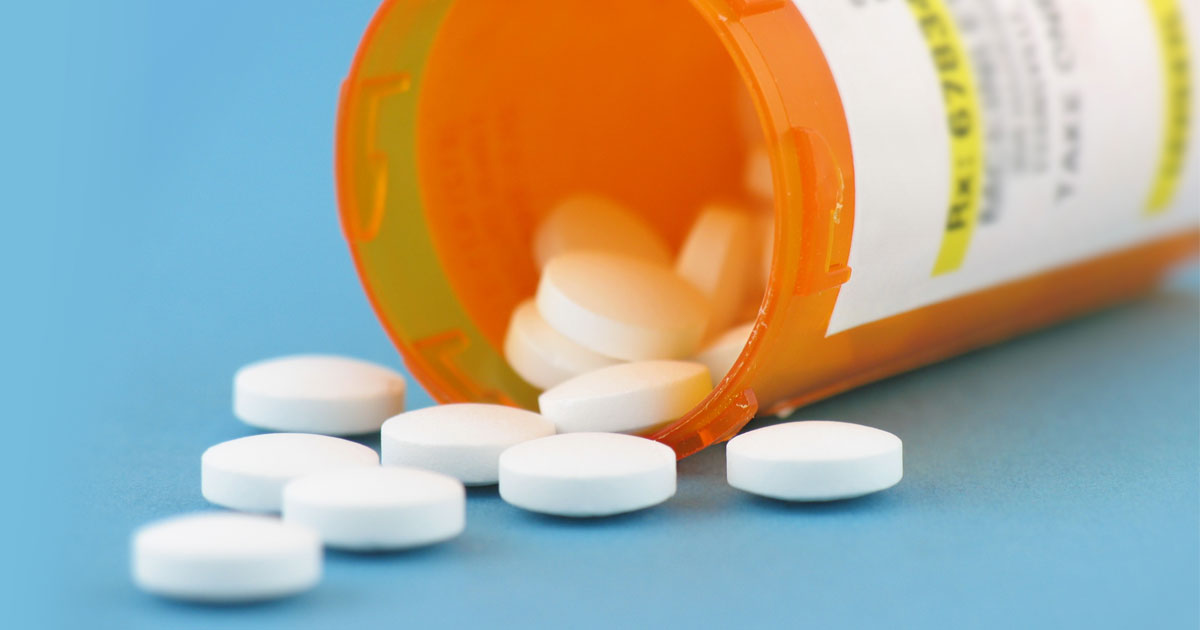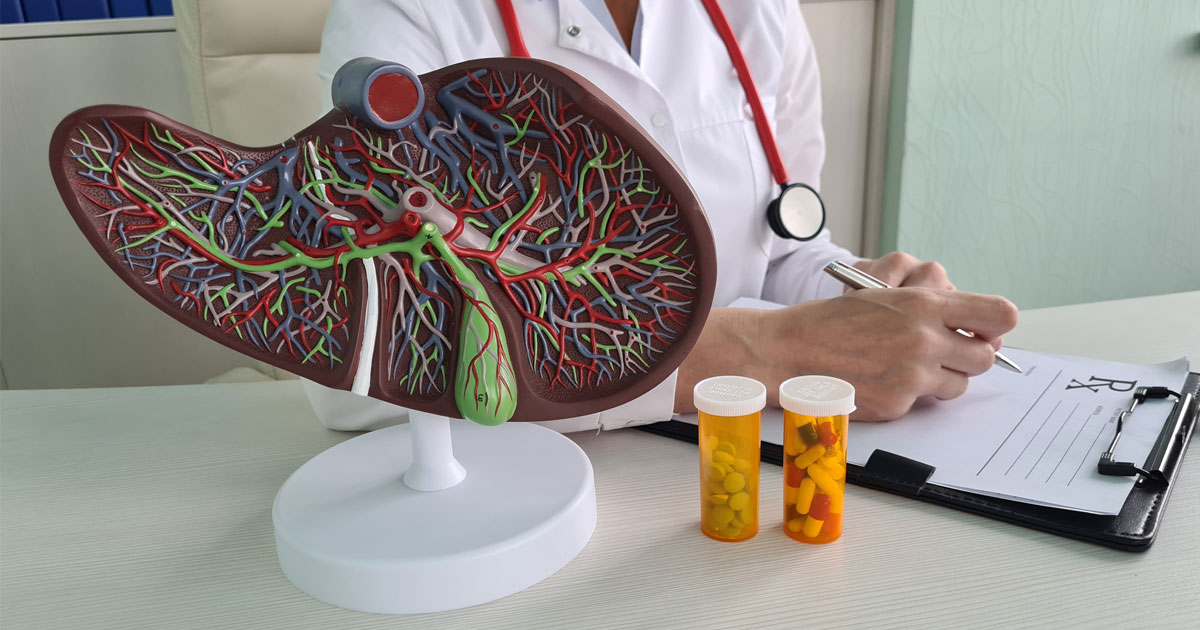1. Grant, D.M. Detoxification pathways in the liver. (1991). J Inherit Metab Dis 14, 421–430. [cited 2023 Dec 13]
2. Exton JH, Blackmore PF, El-Refai MF, Dehaye JP, Strickland WG, Cherrington AD, Chan TM, Assimacopoulos-Jeannet FD, Chrisman TD. Mechanisms of hormonal regulation of liver metabolism. Adv Cyclic Nucleotide Res. 1981;14:491-505. PMID: 6116389. [cited 2023 Dec 13]
3. Trapani, L., Segatto, M., & Pallottini, V. (2012). Regulation and deregulation of cholesterol homeostasis: The liver as a metabolic “power station.” World journal of hepatology, 4(6), 184–190. ]cited 2023 Dec 13]
4. NIH Alcohol and the Human Body [cited 2023 Dec 13]
5. Ahmed, S. N., & Siddiqi, Z. A. (2006). Antiepileptic drugs and liver disease. Seizure, 15(3), 156-164. [cited 2023 Dec 13]
6. Voican, C. S., Corruble, E., Naveau, S., & Perlemuter, G. (2014). Antidepressant-induced liver injury: a review for clinicians. American Journal of Psychiatry, 171(4), 404-415. [cited 2023 Dec 13]
7. Telles-Correia D, Barbosa A, Cortez-Pinto H, Campos C, Rocha NB, Machado S. Psychotropic drugs and liver disease: A critical review of pharmacokinetics and liver toxicity. World J Gastrointest Pharmacol Ther. 2017 Feb 6;8(1):26-38. doi: 10.4292/wjgpt.v8.i1.26. PMID: 28217372; PMCID: PMC5292604. [cited 2023 Dec 13]
8. Ejike, C. E. C., Alumanah, E. O., Ezeanyika, L. U. S., Ngene, A. A., & Ojefua, E. O. (2008). Antibiotics administration and its possible liver damage. Bio-Research, 6(2), 351-354. [cited 2023 Dec.13]
9. Neri, M., Bello, S., Bonsignore, A., Cantatore, S., Riezzo, I., Turillazzi, E., & Fineschi, V. (2011). Anabolic androgenic steroids abuse and liver toxicity. Mini reviews in medicinal chemistry, 11(5), 430-437.[cited 2023 Dec 13]
10. Dumortier G, Cabaret W, Stamatiadis L, Saba G, Benadhira R, Rocamora JF, Aubriot-Delmas B, Glikman J, Januel D. Tolérance hépatique des antipsychotiques atypiques [Hepatic tolerance of atypical antipsychotic drugs]. Encephale. 2002 Nov-Dec;28(6 Pt 1):542-51. French. PMID: 12506267. [cited 2023 Dec 13]
11. Yan M, Huo Y, Yin S, Hu H. Mechanisms of acetaminophen-induced liver injury and its implications for therapeutic interventions. Redox Biol. 2018 Jul;17:274-283. doi: 10.1016/j.redox.2018.04.019. Epub 2018 Apr 22. PMID: 29753208; PMCID: PMC6006912. [cited 2023 Dec. 13]
12. Teschke R. Kava hepatotoxicity–a clinical review. Ann Hepatol. 2010 Jul-Sep;9(3):251-65. PMID: 20720265. [cited 2023 Dec 13]
13. LiverTox: Clinical and Research Information on Drug-Induced Liver Injury [Internet]. Bethesda (MD): National Institute of Diabetes and Digestive and Kidney Diseases; 2012-. Black Cohosh. [Updated 2020 Nov 4]. [cited 2023 Dec 13]
14. Mazzanti G, Di Sotto A, Vitalone A. Hepatotoxicity of green tea: an update. Arch Toxicol. 2015 Aug;89(8):1175-91. doi: 10.1007/s00204-015-1521-x. Epub 2015 May 16. PMID: 25975988.[cited 2023 Dec 13]
15. LiverTox: Clinical and Research Information on Drug-Induced Liver Injury [Internet]. Bethesda (MD): National Institute of Diabetes and Digestive and Kidney Diseases; 2012-. Comfrey. [Updated 2022 May 24]. [cited 2023 Dec 13]
16. LiverTox: Clinical and Research Information on Drug-Induced Liver Injury [Internet]. Bethesda (MD): National Institute of Diabetes and Digestive and Kidney Diseases; 2012-. Valerian. [Updated 2020 Apr 5]. [cited 2023 Dec 13]
17. LiverTox: Clinical and Research Information on Drug-Induced Liver Injury [Internet]. Bethesda (MD): National Institute of Diabetes and Digestive and Kidney Diseases; 2012-. Chaparral. [Updated 2022 May 25]. Available from: https://www.ncbi.nlm.nih.gov/books/NBK548355/
18. Brown-Joel ZO, Colleran ES, Stone MS. Inflammatory sebotropic reaction associated with kava kava ingestion. JAAD Case Rep. 2018 Apr 30;4(5):437-439. doi: 10.1016/j.jdcr.2017.12.011. PMID: 29984274; PMCID: PMC6031569.
19. Bian T, Corral P, Wang Y, Botello J, Kingston R, Daniels T, Salloum RG, Johnston E, Huo Z, Lu J, Liu AC, Xing C. Kava as a Clinical Nutrient: Promises and Challenges. Nutrients. 2020 Oct 5;12(10):3044. doi: 10.3390/nu12103044. PMID: 33027883; PMCID: PMC7600512. [cited 2023 Dec 13]
20. World health Organization Kava: A review of the safety of traditional and recreational beverage consumption. [published in Rome, 2016] [cited 2023 Dec 13]
21. Zoubek ME, Lucena MI, Andrade RJ, Stephens C. Systematic review: ibuprofen-induced liver injury. Aliment Pharmacol Ther. 2020 Mar;51(6):603-611. doi: 10.1111/apt.15645. Epub 2020 Jan 27. PMID: 31984540. [cited 2023 Dec 13]
22. LiverTox: Clinical and Research Information on Drug-Induced Liver Injury [Internet]. Bethesda (MD): National Institute of Diabetes and Digestive and Kidney Diseases; 2012-. Aspirin. [Updated 2017 Jul 27]. [cited 2023 Dec 13]













